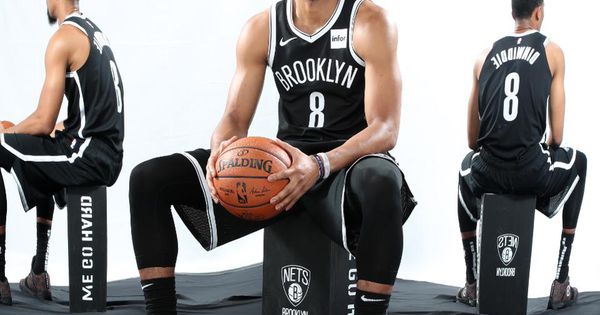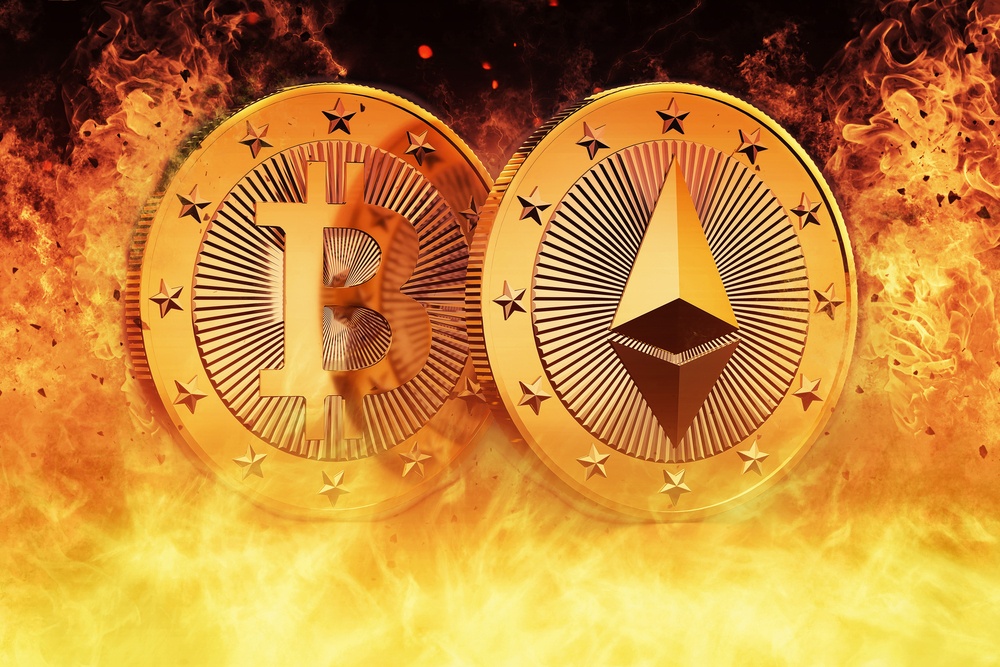 The National Basketball Association is looking to block Spencer Dinwiddie’s effort to tokenize his contract with the Brooklyn Nets.Dinwiddie wanted to introduce a platform that would allow athletes to link their contracts to a tokenized security based on the Etheruem blockchain technology.Dinwiddie’s unique idea was first explained by The Athletic’s Shams Charania.Dinwiddie would give up “some future income in return for a smaller lump sum payment.But the borrower (Dinwiddie) then has more money to invest immediately.A token is a digital security term.
The National Basketball Association is looking to block Spencer Dinwiddie’s effort to tokenize his contract with the Brooklyn Nets.Dinwiddie wanted to introduce a platform that would allow athletes to link their contracts to a tokenized security based on the Etheruem blockchain technology.Dinwiddie’s unique idea was first explained by The Athletic’s Shams Charania.Dinwiddie would give up “some future income in return for a smaller lump sum payment.But the borrower (Dinwiddie) then has more money to invest immediately.A token is a digital security term.
The bond exists in the digital currency world.Instead of buying the bond through a broker, it is purchased through a token.
“For Dinwiddie and his investors, the prime appreciation is designed to come during his player option season in 2021.
Dinwiddie has a player option worth $12.3 million for the 2021–22 season.By opting out and earning more, it will, of course, create a major return for him — but also investors.”
The NBA then issued a statement saying the venture was not permitted, citing the current Collective Bargaining Agreement.The NBA’s press release stated “the described arrangement is prohibited by the CBA [Collective Bargaining Agreement],” referring to 2.13d, which says: “No player shall assign or otherwise transfer to any third party his right to receive compensation.”
Larry Cermak, Director of Research for the cryptocurrency and blockchain research publication The Block, agreed to answer a few questions to help fans better understanding the Ethereum platform and Dinwiddie’s tokenization process.Anytime an idea linked to blockchain technology is shot down, there are obvious reactions in the crypto communities.
“I don’t want to speak for the crypto world.I found it disappointing but understandable.I think the NBA officials are misunderstanding the structure of Dinwiddie’s tokens.
He is not transferring or assigning his contract to a third party.Dinwiddie is only guaranteeing that allotted funds he earns playing for the Nets will be distributed to the investors.”
Dinwiddie and his legal team will meet NBA’s officials to discuss the issue again.It may not matter, according to Cermak.He said, “I’m not sure they could even stop him from using the money he earns.
In any way, it will be interesting to follow this in the coming weeks.”
For those wanting to follow along, it takes some learning of crypto terminology and the basic processes.For starters, is there a simple way to explain Dinwiddie’s idea?
“Dinwiddie sought to tokenize forty percent of his contract.He is also releasing a platform for use by other athletes.
The basic outline of this platform would be that any athlete could transform a portion of their future earnings backed by their contract into an investable token.Athletes would get money upfront while investors could get exposure to the athlete’s success.”
Dinwiddie just signed a three-year $34 million contract with the Brooklyn Nets.To Cermak’s understanding, “Dinwiddie met with his legal team and made sure he was not violating the NBA’s collective bargaining agreement (CBA) before moving forward with the tokenization effort.” Dinwiddie also reportedly talked with NBA and NBPA to ensure that his offering would comply with the CBA.
Athletes receive a lot of bad financial advice; they all say so.The stories of athletes in financial ruin are numerous and well known.How well thought out was this project?
Cermak replied, “Really well actually.Dinwiddie planned to issue tokens linked to his contract.Token investors would receive monthly payments plus interest while Dinwiddie receives more of his contract in the form of upfront payment.
However, the token would be more than just a typical bank bond.Investors also get potential bonuses as well as potentially a much larger payout in the third year.”
Where would that interest come from and how? With interest rates as they are, why would Dinwiddie not work with a Wells Fargo or JP Morgan?
“The interest is coming from Dinwiddie’s pockets.
He gets money upfront and if he invests it wisely, he can easily make enough to cover the likely very low-interest payments.I think that this is about a much bigger vision for Dinwiddie than just getting some money upfront though.He wants other athletes to do the same — he wants to create a new asset class where investors could get exposure to the future success of promising athletes.Way down the line, this could lead to real fantasy sports.”
Dinwiddie could opt out of his contract after two seasons.Should he sign a more financially lucrative contract, “token owners would benefit as well.” Bonuses for any team and individual honors like playoff checks or All-Star Game appearances would also be balanced into the investment.
So people buy the tokens and Dinwiddie gets the cash.
What do people do with those tokens? Could Dinwiddie use the other half of his contract to purchase tokens? What if he opts out, but then strikes out in the free-agent market? It is unlikely, but it happens to players every NBA offseason.
“People likely won’t be able to do much with the tokens.
He is issuing them under Reg D and is only allowing accredited investors to participate.Investors may not be able to liquidate their tokens because there will very likely not be a secondary market.There are also restrictions upon the transferability of the tokens.It’s therefore possible that investors might have to hold the tokens until they are redeemed fully in 3 years.
This is of course not a long term plan but rather a regulatory bottleneck.
“Dinwiddie only wants to tokenize 40% of the contract.He could technically change his mind later and tokenize more.
If he were to opt out and then struck out (in free agency), investors would be out of luck.If he signed a lower value contract or no contract at all, investors would lose money.That’s one of the risks.
But I think that’s very unlikely.”
As an investor, looking at the high side benefits is all well and good.However, many an ICO made the news for all the wrong reasons.What are the inherent risks to these types of investments?
“It makes no sense to compare a security token to something like ICOs, which were purely speculative tokens with no backing or claim to any cashflows.ICOs eventually died because the incentives were misaligned since day 1.
That’s not the case with a properly structured security token that’s backed by someone’s guaranteed contract.”
“For investors, there is virtually no risk of non-payment.Dinwiddie’s contract with the Brooklyn Nets is guaranteed.He will be paid even through bad play or an unfortunate injury.There are some risks though.He could do something stupid off the court and lose his contract.He could theoretically opt out after the second year and then not find a better deal.Or the NBA could go bankrupt.
These are all very small risks but they are possible.”
So there is safety in the middle ground? They just wait for the game checks to pay out, then token holders get paid? What’s the benefit? How is that interest earned? What if Bitcoin or Ethereum tanks?
“Token holders get paid on a monthly basis when Dinwiddie gets his paychecks.It doesn’t matter if Bitcoin or Ethereum tanks.This investment is only tied to Dinwiddie’s contract — it has nothing to do with the price of Bitcoin or Ethereum.”
Opening up an NBA contract to the crypto world seems a bit dangerous.Is this an open-source project? How would the link from the contract to the crypto token be created? Is it akin to a gold standard? Would this link put Dinwiddie’s contract at risk for digital theft?
“He is not opening his contracts to the crypto world.
He is opening his contract to anyone who wants to participate.The tokens are just represented on Ethereum blockchain.He is doing this with a company Securitize.There is very little risk that anything nefarious happens.If some tokens were hypothetically stolen, they can be recovered and given back to the original owner.”
Not every fan can invest in Dinwiddie’s token.Cermak sees a problem in that “he is issuing it under Reg D.
His token will only be available for accredited investors with a minimum $150,000 investment.”
Most fans will be priced out of that market.However, the barrier for entry for athletes looking to tokenize their contract is much lower.Cermak says, he “could see other athletes exploring crypto options soon.” Well past the basic fantasy leagues, “this could become a new asset class for investors to bet on players’ careers.”
DraftKings and FanDuel built empires on fan’s basic understanding and high level of engagement in fantasy sports.Tokenized contract markets are a bit more complex, and require more than a promo code to get started.Cermak believes the tokenized contracts market “would have to be made available to non-accredited investors.They would also have to be divided into much smaller portions and traded on the secondary market with liquidity.”
The NBA and NCAA were floating new agent accreditation guidelines earlier this summer.
The power of Rich Paul worries some of the more conservative suits in the hoops world.Now, players are branching out and investing their time, and contracts, into wholly different types of currencies or tokens.
In the end, why would anyone want to link their paycheck to a token? Could this idea work in other industries? What if Dinwiddie filed for bankruptcy? Is this a common investment strategy, is it a sound strategy in the crypto world, and would the more traditional financial sectors have a similar option? A hedge fund perhaps?
Cermak says, “He is doing it because it creates a new asset class that will inevitably become popular in the future.He wants to be the disruptor.The first person to do it and potentially make some money from it.”
As understood, even if Dinwiddie filed for bankruptcy, investors would still get the money as long as his contract was still valid.He will be contractually obligated to send the money to investors when he gets a paycheck.Any fears the NBA has over cyrpto markets crashing are misguided.
“This has almost nothing to do with cryptocurrency.Just that the underlying technology is used to power these securities.Something like this could very well work without being on Ethereum.
But if this asset class were to grow and more athletes started tokenizing their contracts, having it issued on Ethereum or some other smart contract platform does make everything easier.”
Would the NBA take the same stance if a more marketable star took this approach with their contract? Only time will tell.Until then, Cermak says, “The NBA’s involvement only serves to attract more attention to the idea.I imagine that Dinwiddie loves the free PR.”.
